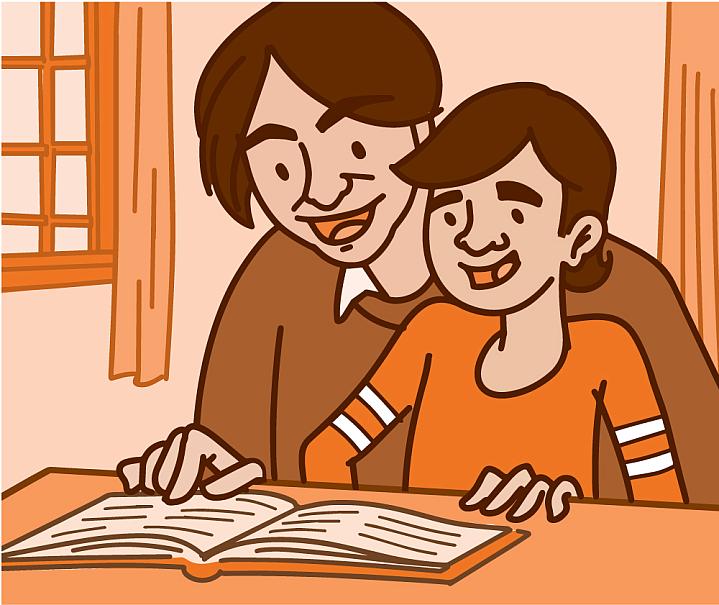Decoding Dyslexia
Helping Kids Who Struggle With Reading

Kids have a lot to learn in their first five years of life. They learn to walk, talk, and eventually to start reading. But while kids can pick up walking and talking naturally, they must be taught how to read. Children who struggle with the building blocks of reading may be at risk for developing dyslexia.
Dyslexia is a reading disorder in which people find it hard to link speech sounds to letters and words. They also have trouble with spelling and recognizing words. These issues make reading difficult.
“To develop reading skills, your brain has to reorganize itself,” says Dr. Jack Fletcher, a neuropsychologist at the University of Houston. “It takes brain areas that are built for language and for visual attention and repurposes them for reading.”
But everyone’s brain is different. These differences can make it harder for certain people to learn to read. Your genesStretches of DNA you inherit from your parents that define characteristics, like how likely you are to get certain diseases. can affect your chance of developing dyslexia. The disorder tends to run in families. Environmental factors, like not having access to quality instruction, can also raise your risk.
“We can lessen that risk with instruction on reading and on how language works and other approaches,” says Fletcher. But early intervention is key.
“We want to identify kids who are at risk for dyslexia and intensify their instruction early on to try and keep them from developing dyslexia,” Fletcher explains.
Kids who struggle to keep up with classmates are also at risk for developing mental health issues, like anxiety and depression. “We know that in first grade in particular, kids are very aware of how well they’re reading, and who in the classroom is not reading well. That is troublesome to lots of kids,” Fletcher says.
Decades of research has identified the best way to teach most children to read. Kids must first learn what’s called “phonemic awareness.” This means they understand that words are composed of distinct sounds, or “phonemes.” Then they have to apply this knowledge to printed text and understand that the letters represent the structured sounds of speech. If they don’t gain these skills early on, it can affect their progress in learning to read as they get older.
If your child has trouble reading, talk with their teacher and their doctor. Health professionals can help rule out certain other issues, like hearing or vision problems, that may underlie reading problems. An evaluation for dyslexia may involve visits to specialists such as speech-language pathologists, psychologists, or a reading or education specialist.
If your child attends public school, you may be able to request a free evaluation. Public schools in the U.S. are required to provide free special education support to children with specific learning disabilities, including dyslexia.
Children with dyslexia sometimes have other learning problems, too, such as difficulties with writing or reading comprehension. These problems can be caused by dyslexia or by separate learning disabilities. Many kids with dyslexia also have attention deficit hyperactivity disorder (ADHD). ADHD is not a learning disability. But it can interfere with learning because it disrupts attention span and the ability to organize. ADHD requires its own treatments.
There is no cure for dyslexia. But early recognition of the condition, and support at home and school, can help set kids with dyslexia on the road to success. The Wise Choices box lists early signs to look for. And read our Q&A with Dr. Jack Fletcher for more information about dyslexia.
NIH Office of Communications and Public Liaison
Building 31, Room 5B52
Bethesda, MD 20892-2094
nihnewsinhealth@od.nih.gov
Tel: 301-451-8224
Editor: Harrison Wein, Ph.D.
Managing Editor: Tianna Hicklin, Ph.D.
Illustrator: Alan Defibaugh
Attention Editors: Reprint our articles and illustrations in your own publication. Our material is not copyrighted. Please acknowledge NIH News in Health as the source and send us a copy.
For more consumer health news and information, visit health.nih.gov.
For wellness toolkits, visit www.nih.gov/wellnesstoolkits.



